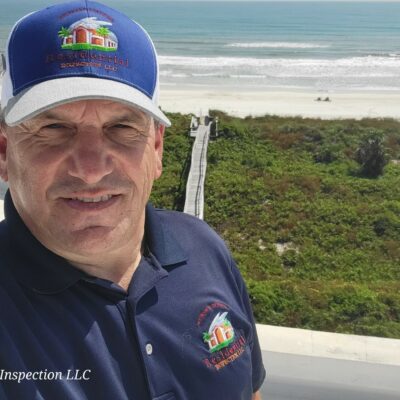To Regulate, or Not to Regulate: State Requirements for Home Inspectors
Last Updated February 6, 2025

If your state doesn’t have state requirements for home inspectors, they may soon. As this article reports, some states, like Maine, experienced a massive migration of homebuyers from more populous and expensive states into their less expensive and less crowded states during the COVID pandemic. This influx has led the receiving, unregulated states to rethink their stances regarding home inspector requirements because of the impact a home inspection can have on new residents.

When a buyer’s home inspector inspects poorly, the buyer may have to pay additional costs to repair any unreported issue. This could include roof leaks, electrical issues, or any number of expensive repairs that their already strained wallet may not be able to handle. The hope with state requirements for home inspectors is that home buyers won’t be hung out to dry by a rushed or poor transaction and inspection.
While Maine did not pass the bill to create state requirements for home inspectors at the time, you can expect that it and other states will consider doing so in the future. We discuss how regulations affect your business and what you can do to protect yourself from any lawsuit regarding these regulations. We’ll also give you a starting point to learning more about your state-specific regulations.
What kind of home inspector requirements do states set?
State requirements for home inspectors create a baseline of service and expertise for consumers. In some areas, fulfilling requirements provides you with necessary licensure to run your inspection business. In others, a license isn’t required, but you do need to follow a state-established standard of practice.
Creating standards takes a certain amount of expertise. So, state governments often delegate creating home inspector regulations to a separate regulatory body, like a board or organization, that is more familiar with the industry. If you’re looking for specific information on the regulations in your state, the most reliable source is always the regulatory entity for your state. (For links to regulatory information by state, check out the chart towards the end of this article.)
The types of regulations or state requirements for home inspectors that you can expect to see will generally fall into a few categories:
- Training requirements
- Insurance requirements
- State-specific standards of practice
- General requirements
Below, we explore each of these types of requirements.

Training Requirements
Inspectors begin their businesses with varying levels of relevant experience. Were you a contractor who knows the insides and outs of any home? Great, you’ll be better prepared to inspect. However, the home inspector requirements in your state may have you take just as much training as someone who has never worked in construction or general contracting before.
The reason that states require training is for quality. So long as every active inspector completes the same level of education, each should provide an acceptable inspection. Furthermore, training requirements create a barrier to entry into the profession, barring untrained inspectors from entering the marketplace.
What do training requirements actually look like? They often dictate you complete specified courses provided by approved inspection schools. The type of course and its length varies significantly by state. Mississippi, for example, requires a 60-hour course to be licensed, while North Carolina requires a 120-hour course.
In addition to in-class training, many states require in-field experience. Whether this experiential portion can be covered through a course that includes field visits or through shadowing another inspector depends on your state, too.
Finally, your instruction may have a capstone requirement of passing an approved exam. While the National Home Inspection Exam (NHIE) is the most common choice, your state could have a state-specific exam. Be sure to study the materials you covered while training, as well as the study materials offered by the exam provider.
Insurance Requirements
A state licensing board requires you to carry home inspector insurance to protect both you and your clients. Whether it is water damage, a ceiling hole, or anything in between, if you damage a client’s home during an inspection, both of you will want to know that the damage is covered. Luckily, general liability (GL) insurance can cover property damage and bodily injury if that becomes necessary. (To learn about the top five general liability claims that inspectors face, read this post.)
Even more common than GL claims and accidents are complaints regarding missed or unreported defects. Regardless of fault, these accusations can blow up into expensive lawsuits for both the client and the home inspector. Because of this, more and more states are requiring inspectors to carry errors and omissions (E&O) insurance.
If a state requires you to carry insurance, they’ll tell you the type and limits that you’re required to carry. Then, to prove you’re carrying adequate insurance, they’ll ask for a certificate of insurance, which you can get from your insurer after purchasing coverage.

State-Specific Standards of Practice
To dictate what a typical inspection should or should not cover, many states adopt standards of practice (SOPs). These documents break down inspections by components or systems and explain your scope. SOPs protect consumers by ensuring clients receive thorough and consistent inspections. They also protect you by defining what is and isn’t included in your services.
Your inspection agreement should list the SOP that you follow. If you are inspecting in a state with its own established SOP, that is the one that you should list in your agreement. Should you belong to an association, you may be tempted to list both your state’s SOP and your association’s SOP, but doing so isn’t a good idea. If you have two standards, claimants can weigh the SOPs against each other in a lawsuit. Having one SOP eliminates confusion and elevates your defense.
General Requirements
Alongside other industry-related state requirements for home inspectors, many states have generalized criteria. A common example is with high school education or age. Your state might require you to be a certain age (often 18 or 21) or older before you can inspect professionally. Other states may require you to have a high school diploma or the equivalent (a GED, for example).
Another example of a common general requirement is a background check. Most states partner with a third-party provider to verify you are who you claim to be and check your criminal record, education, and employment history. They may require you get fingerprinted as part of the process. If you have committed any criminal offenses, those incidences may restrict your ability to inspect. If you are concerned about how a past criminal offense may affect your chances at inspecting, contact your licensing board.
Can you be a home inspector in multiple states?
If you inspect in multiple regulated states, you’ll want to know and meet the requirements for both states. Thankfully, many of the licensing requirements may overlap, such as the insurance or training requirements, so you may be able to kill two birds with one training. So long as you meet the minimum requirements of each state and follow the correct procedure to get licensed, you’ll be ready to go.
Remember, however, that if you’re inspecting in multiple states that have their own state-specific SOPs, you shouldn’t use the same inspection agreement for every state. You should work with a lawyer to create state-specific agreements that were written with each separate state’s regulations, code of conduct, and SOPs in mind, such as InspectorPro’s state-specific model inspection agreements.
Should I try to meet similar criteria even if my state doesn’t require it?
The previous state requirements for home inspectors were designed with the goal of increasing competency by creating a bar that they must jump over. However, you might wonder what you should do if you are in an unregulated state. Are these requirements just a bunch of bother that you don’t actually need?
Let’s say that you’re the type of inspector who has a lot of inspection-adjacent experience through contracting, but you live in an unregulated state. Is training worth it? Yes-especially in the daily work of home inspecting, like report writing, marketing, and standards of practice. Getting some basic training from an instructor who can answer questions, with fellow inspectors that can share their experiences, and from a curriculum that can provide you a foundation may be just what you need to start on the right foot.
Whether your state requires insurance or not, insurance provides peace of mind. Claims happen all the time to both good and bad inspectors. In fact, over half of all home inspectors can expect to face at least one claim in their careers. These claims can be expensive, drawn out, and even ridiculous when facing unreasonable claimants. Rather than having a worst-case scenario, carry E&O and GL insurance for defense and payout help.
If you don’t have a state SOP, should you even follow one? Furthermore, should you list one in your pre-inspection agreement and report? Absolutely. An SOP is like a documented scale that you and your clients can measure your inspections against. If they have unrealistic expectations, like tearing down a wall like they do in HGTV, you can have your SOP back you up when you refuse.
As mentioned before, many associations have SOPs that you can use, should you be a member. Adopt the SOP you know and respect.

Stay up to date on the regulations in your state.
States introduce and pass changes and amendments, and licensing boards alter and tweak requirements and standards all the time. Keep up to date on your state’s requirements for home inspectors-even if you inspect in a state that’s not currently regulated. As more lawsuits and legislations get introduced, there’s an increased likelihood that your state may introduce requirements.
What is the best way to keep up to date? Be involved in a local home inspection community. Even if you are not tuned into the recent changes, there is a good likelihood that someone else in your group or chapter will be. Furthermore, if you check the website for your state’s regulatory body, they’ll often post any changes that have happened or that will happen in the near future. Make a habit of checking occasionally throughout the year-perhaps pick a day every year (one that you can remember, such as a business anniversary) when you will review any changes to the SOPs and code of conduct in your state. This will help you stay up to date on regulations.
Which states regulate home inspectors?
If you are curious about where your state stands, look at the list below:
Get support on your home inspection journey.
Whether you have a state government that is deeply interested in what you do, or you have one that doesn’t care about how you operate your business, you’ll still someone on your side watching out for you.
InspectorPro Insurance is the largest provider of insurance to home inspectors in the nation. Aside from our claims team that has over 15 years of successful claims handling experience, we also have state-specific inspection agreements and pre-claims assistance for our insured inspectors. We would love to help you as well. You can apply for an E&O and GL insurance quote here.
We are excited to see where your home inspection journey will take you, regardless of what state you are in. If you would like to contact us about the regulations in your state, you can do so on our website.





